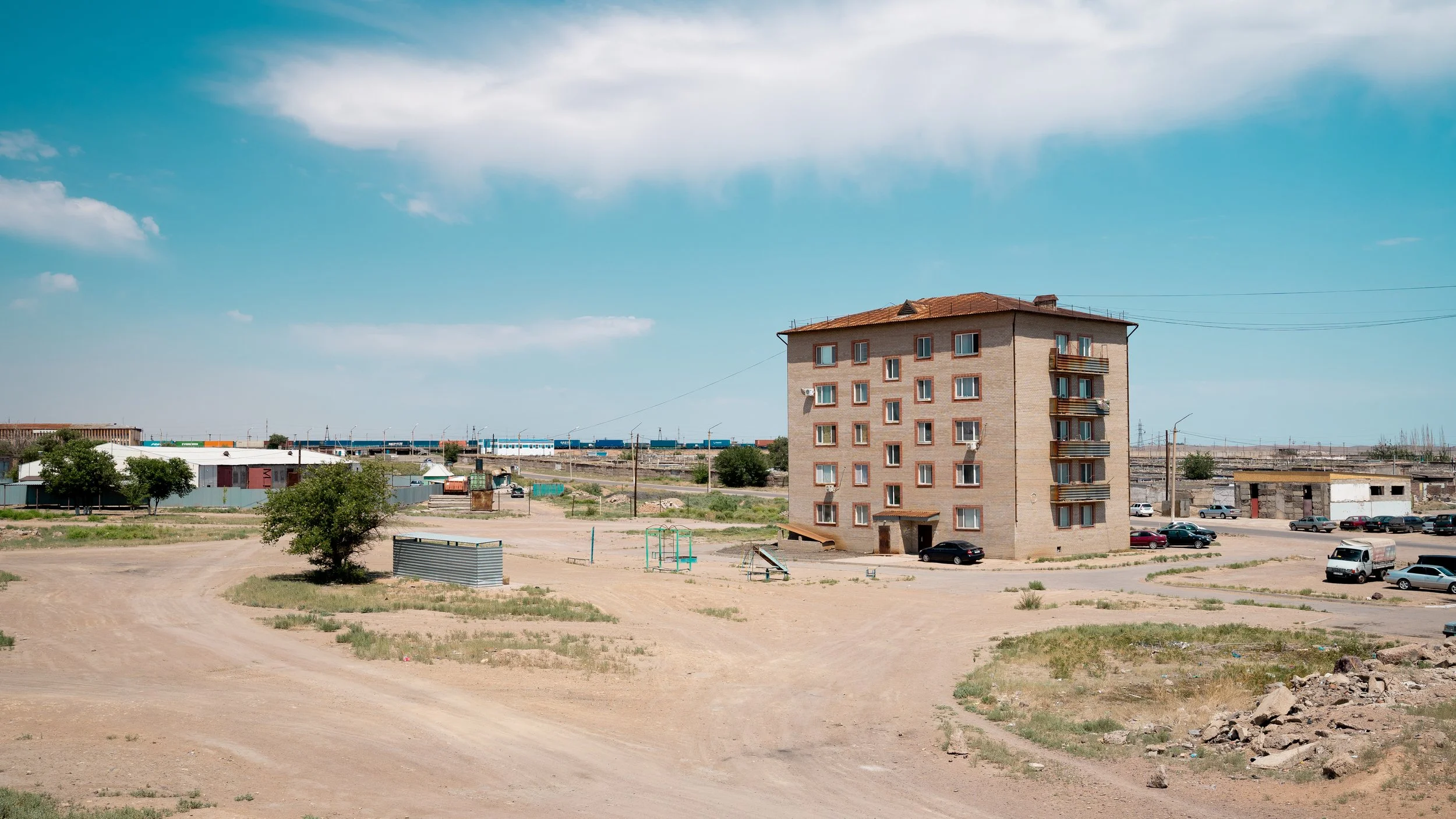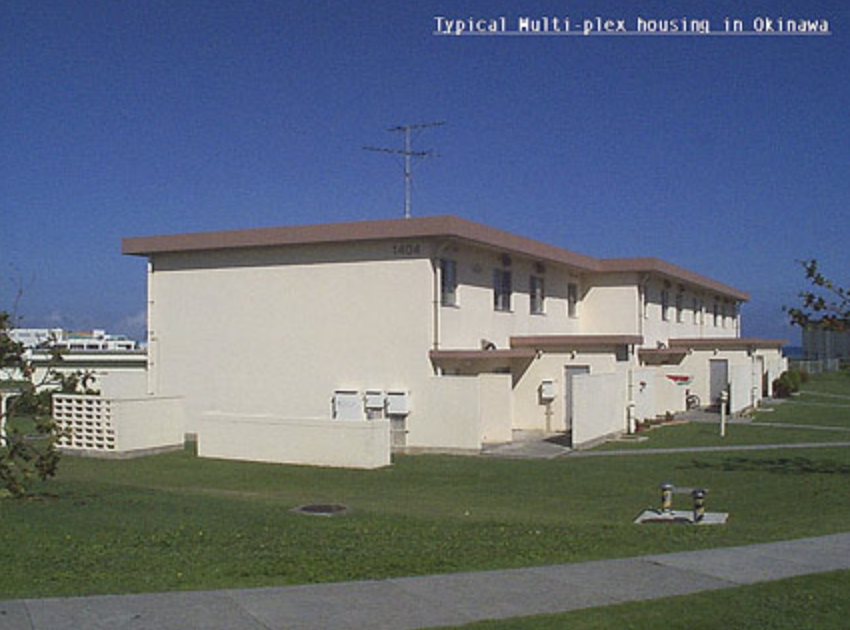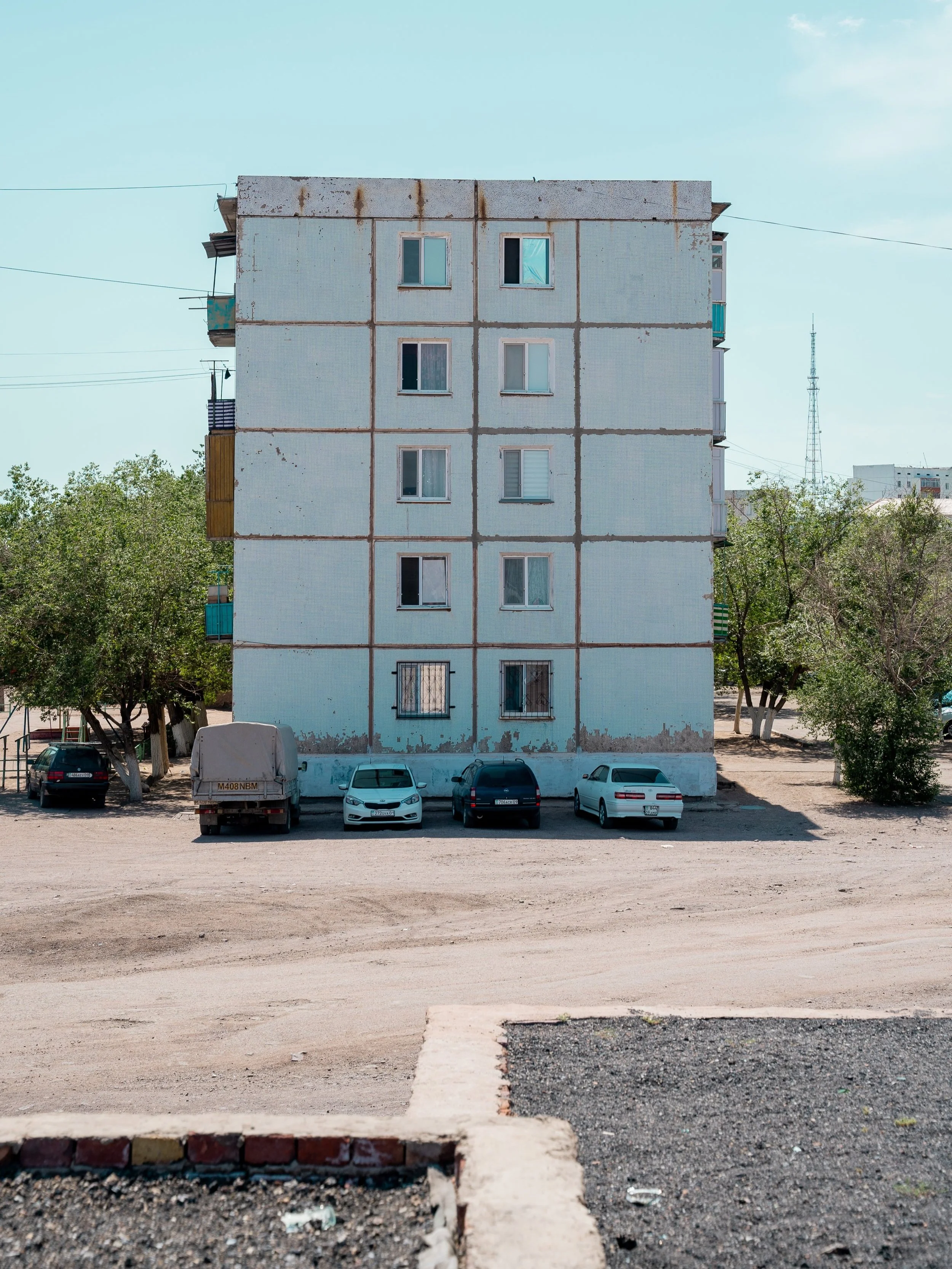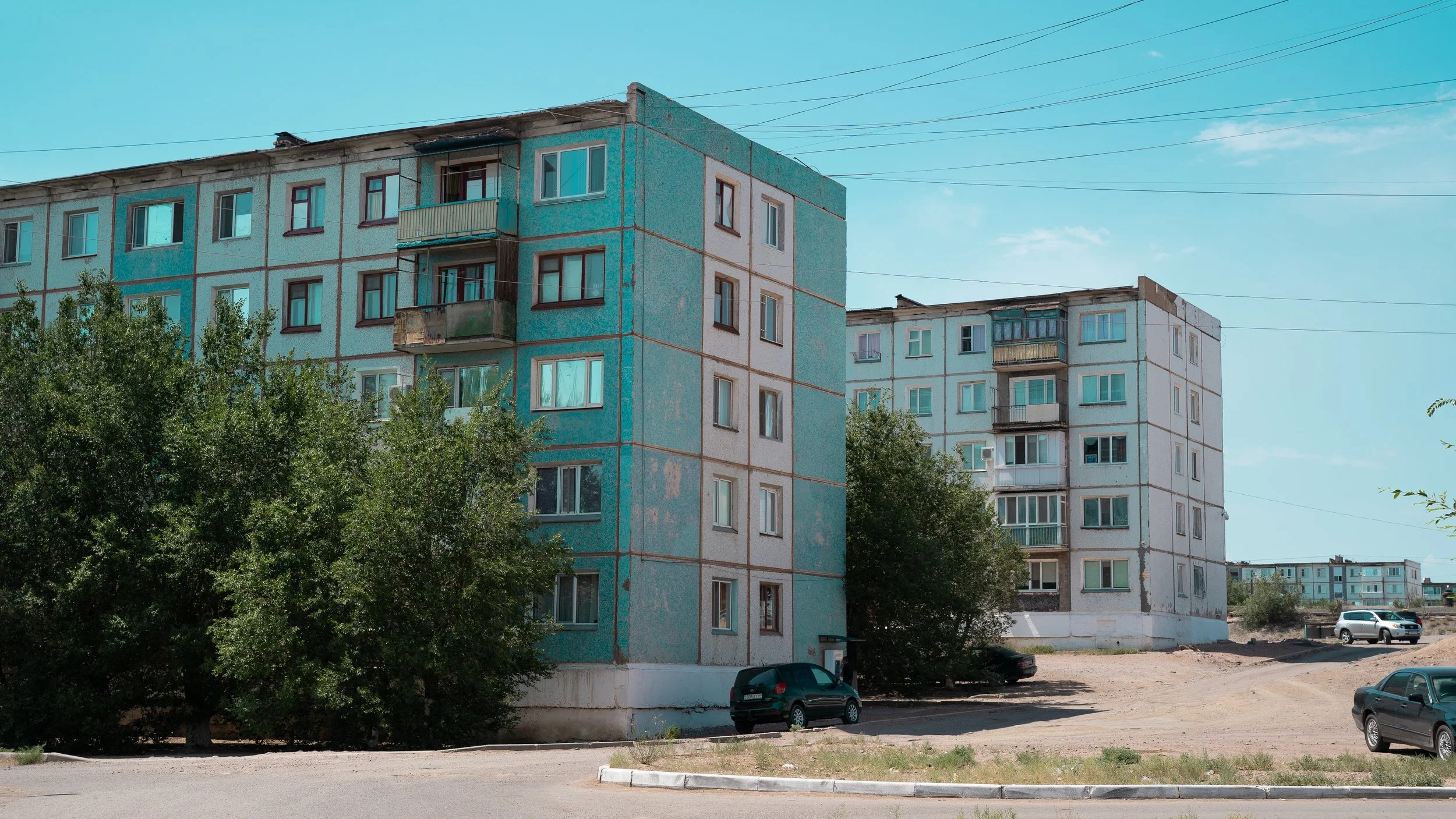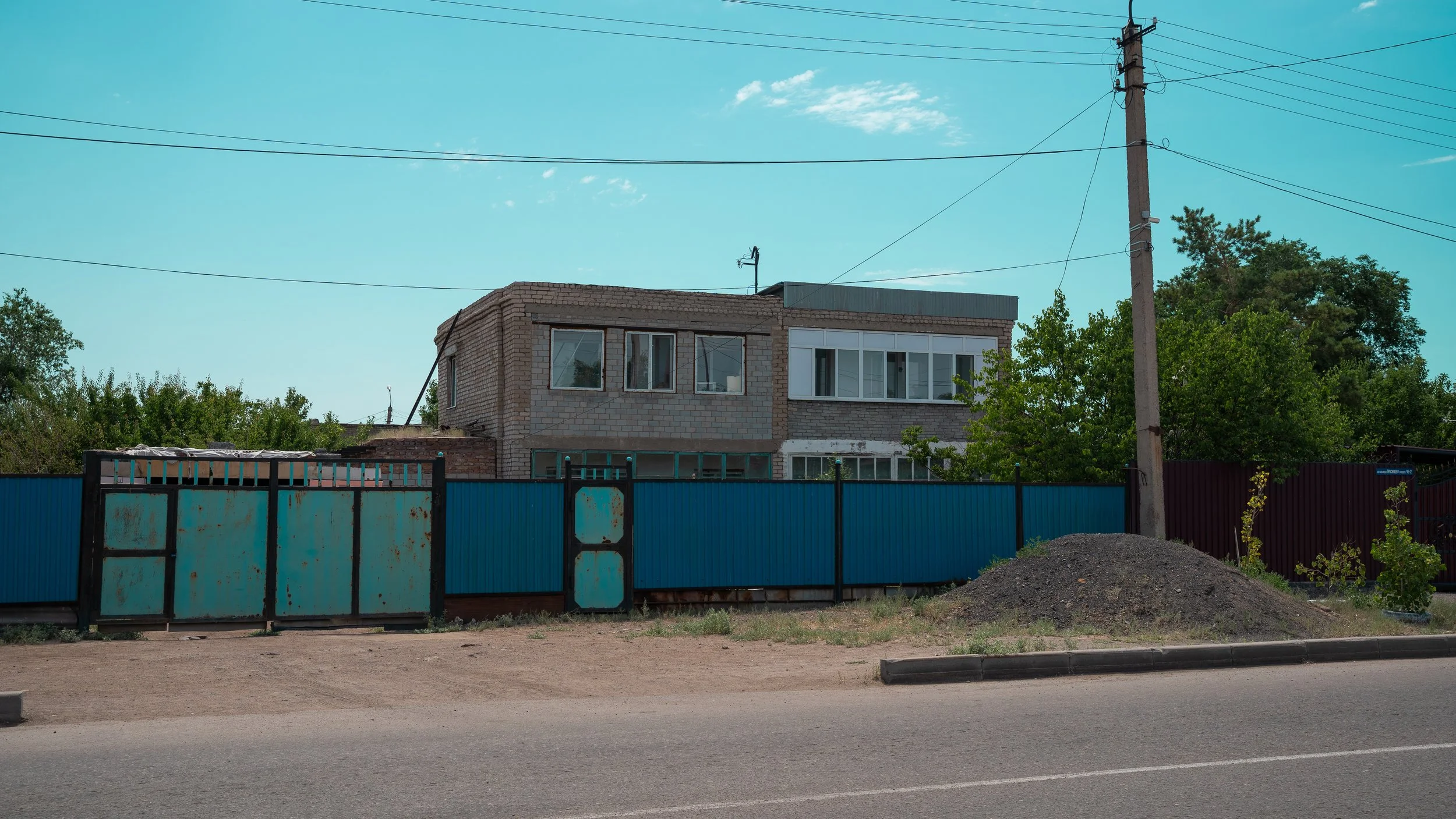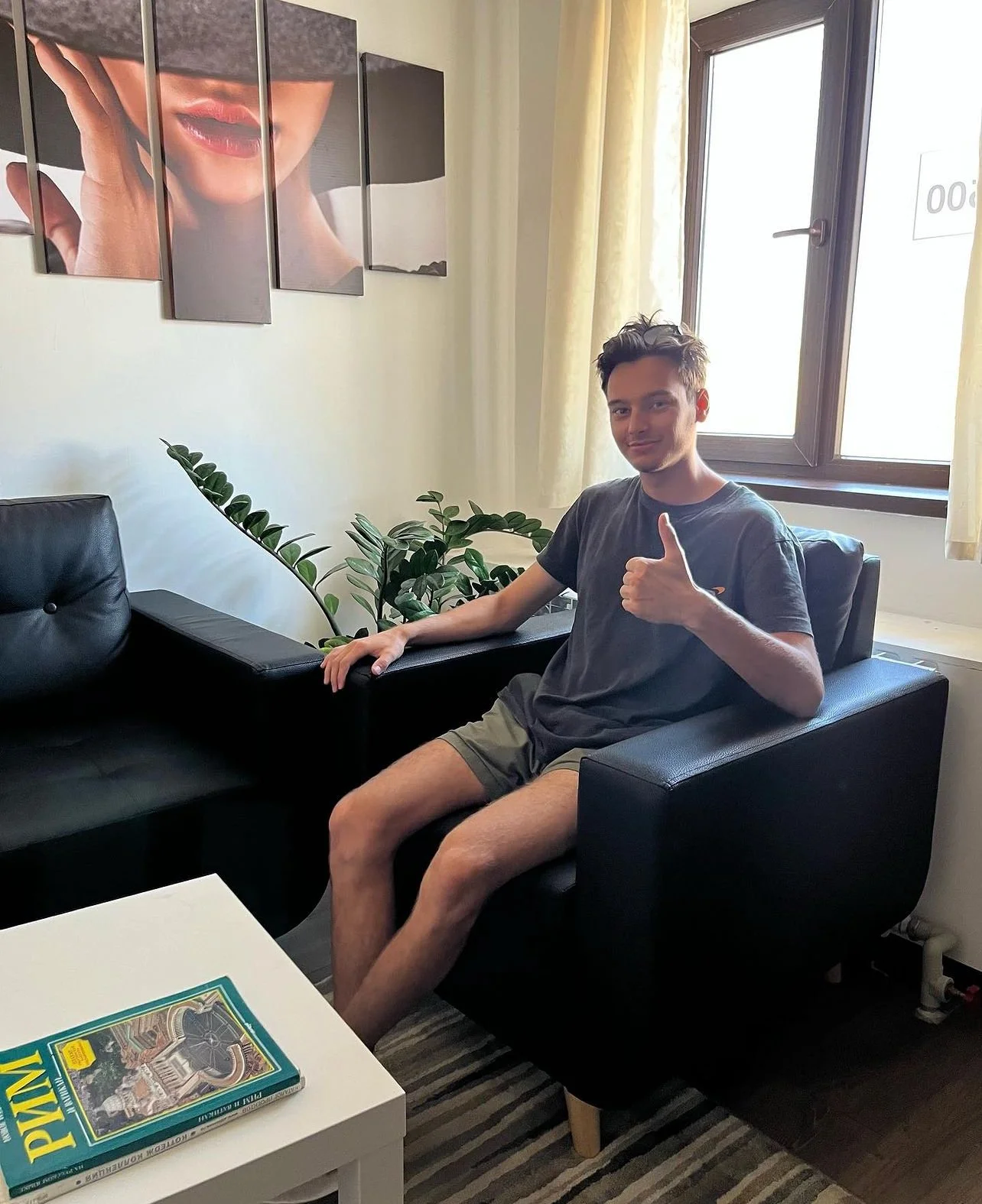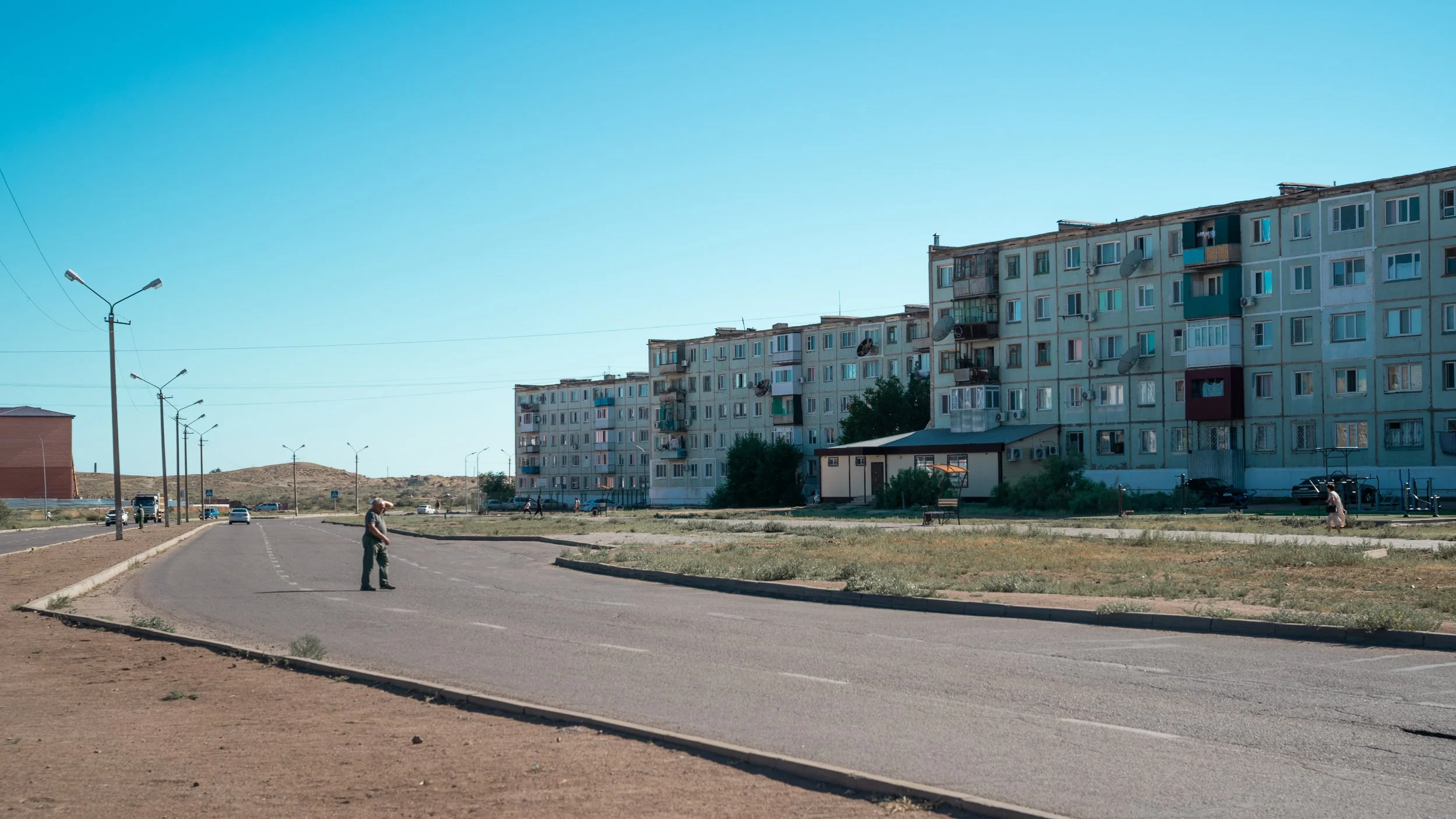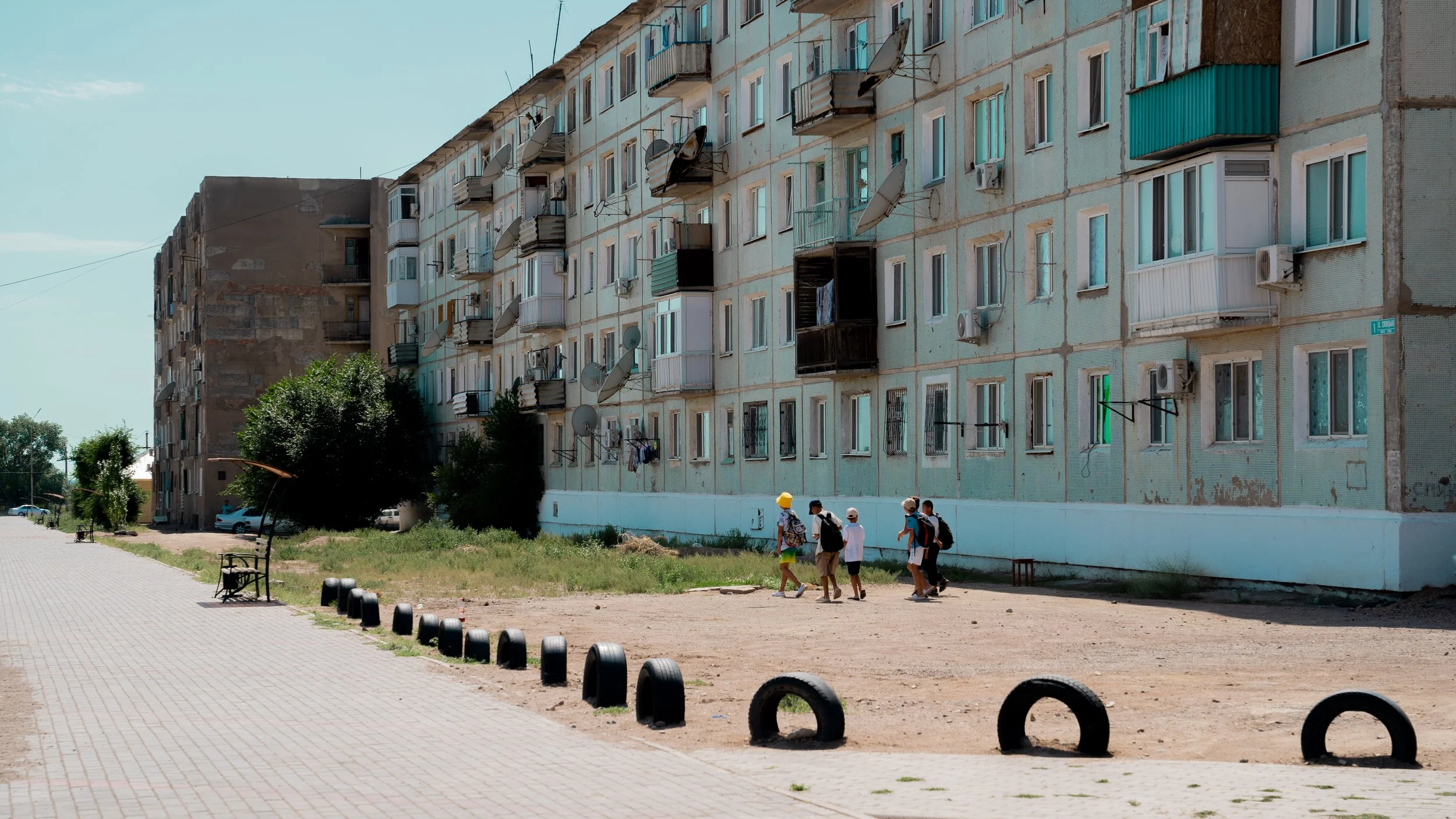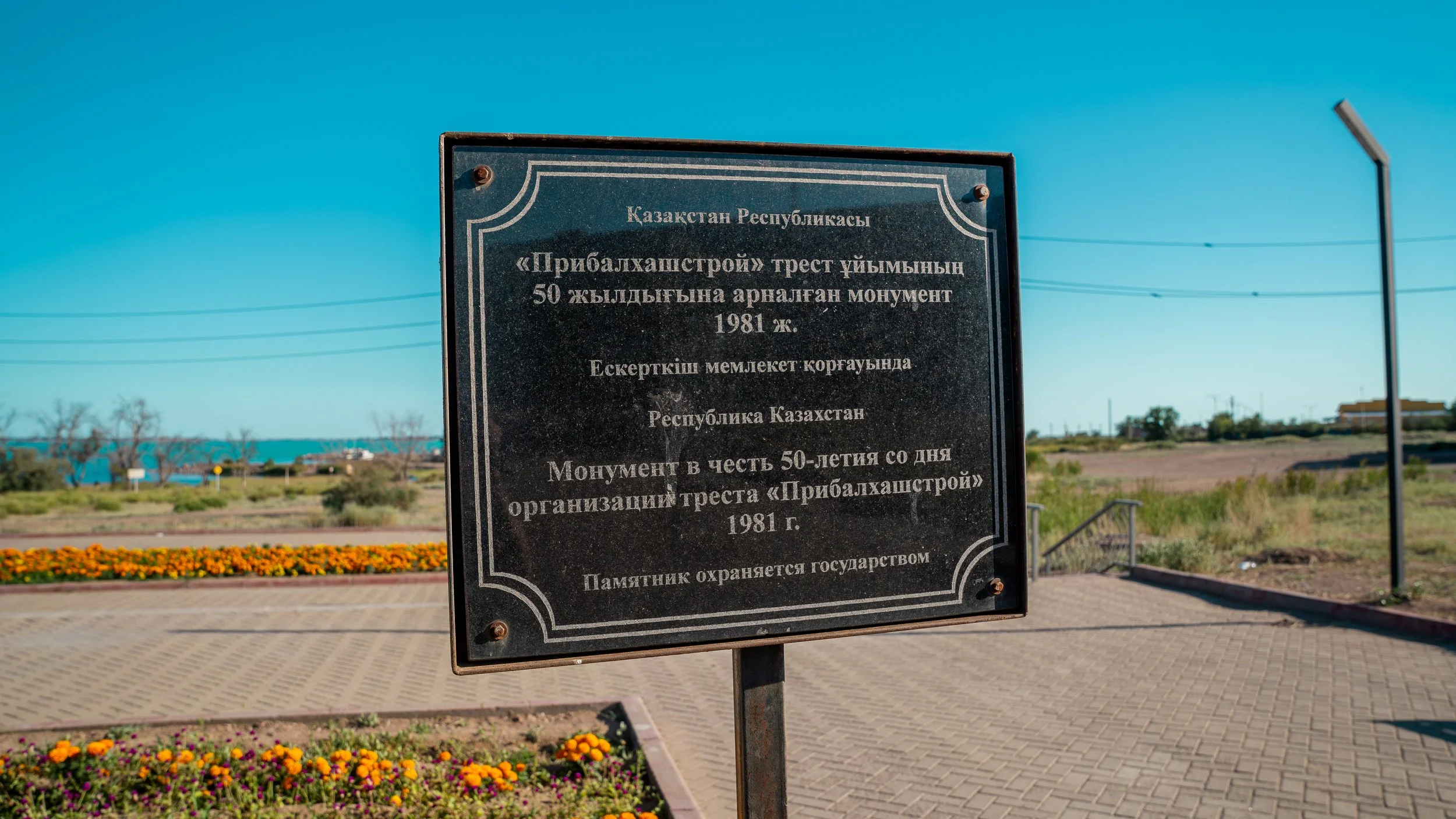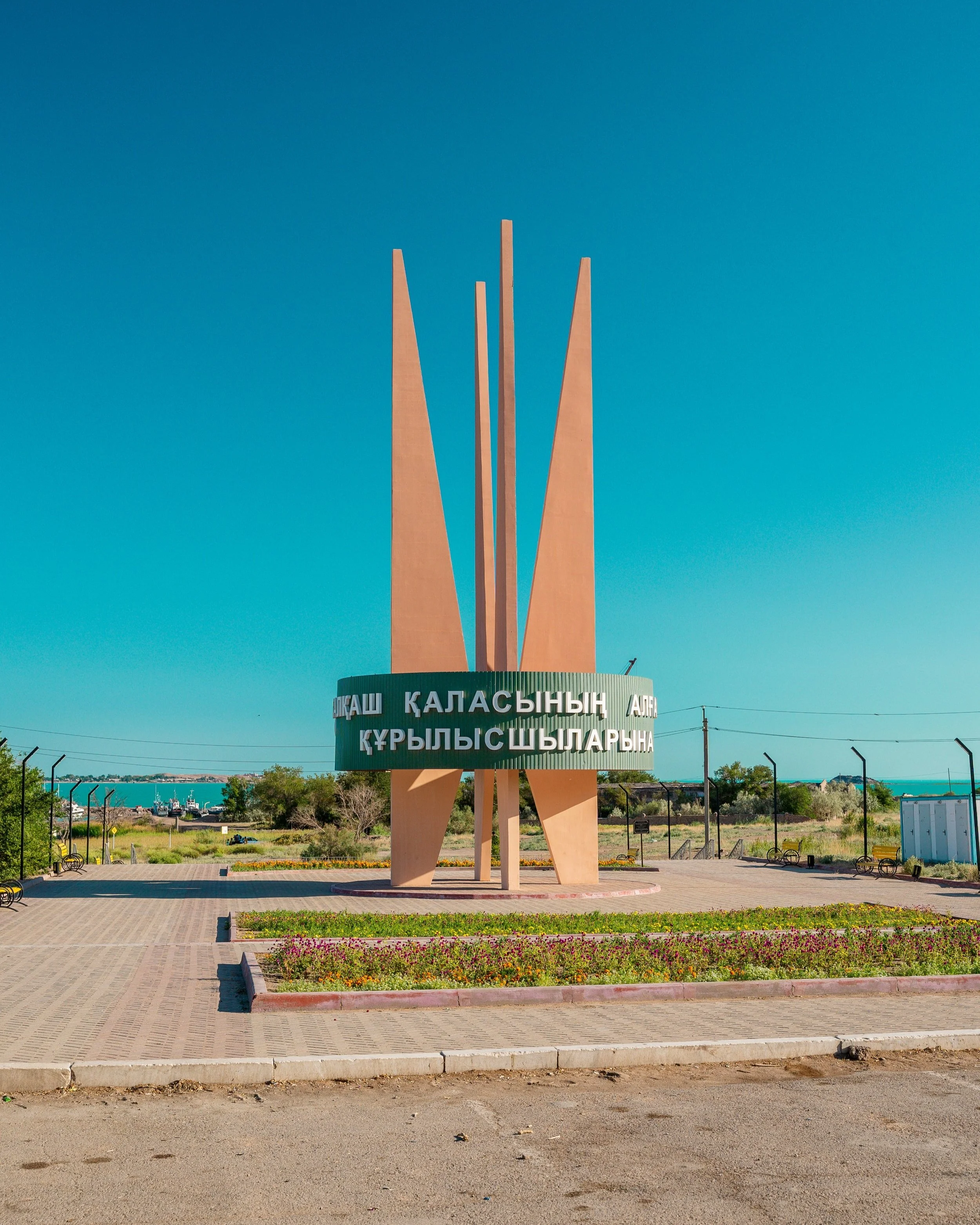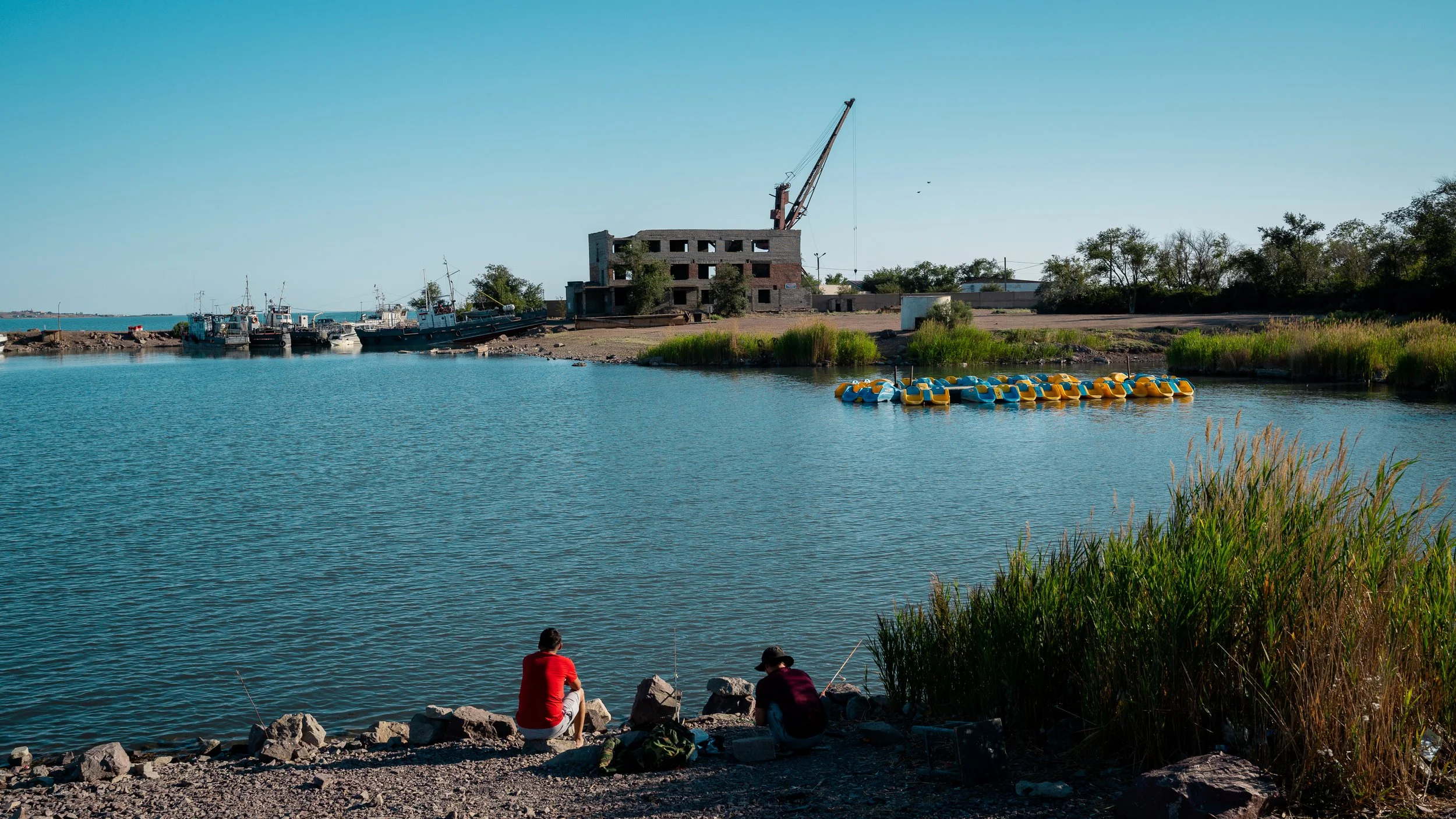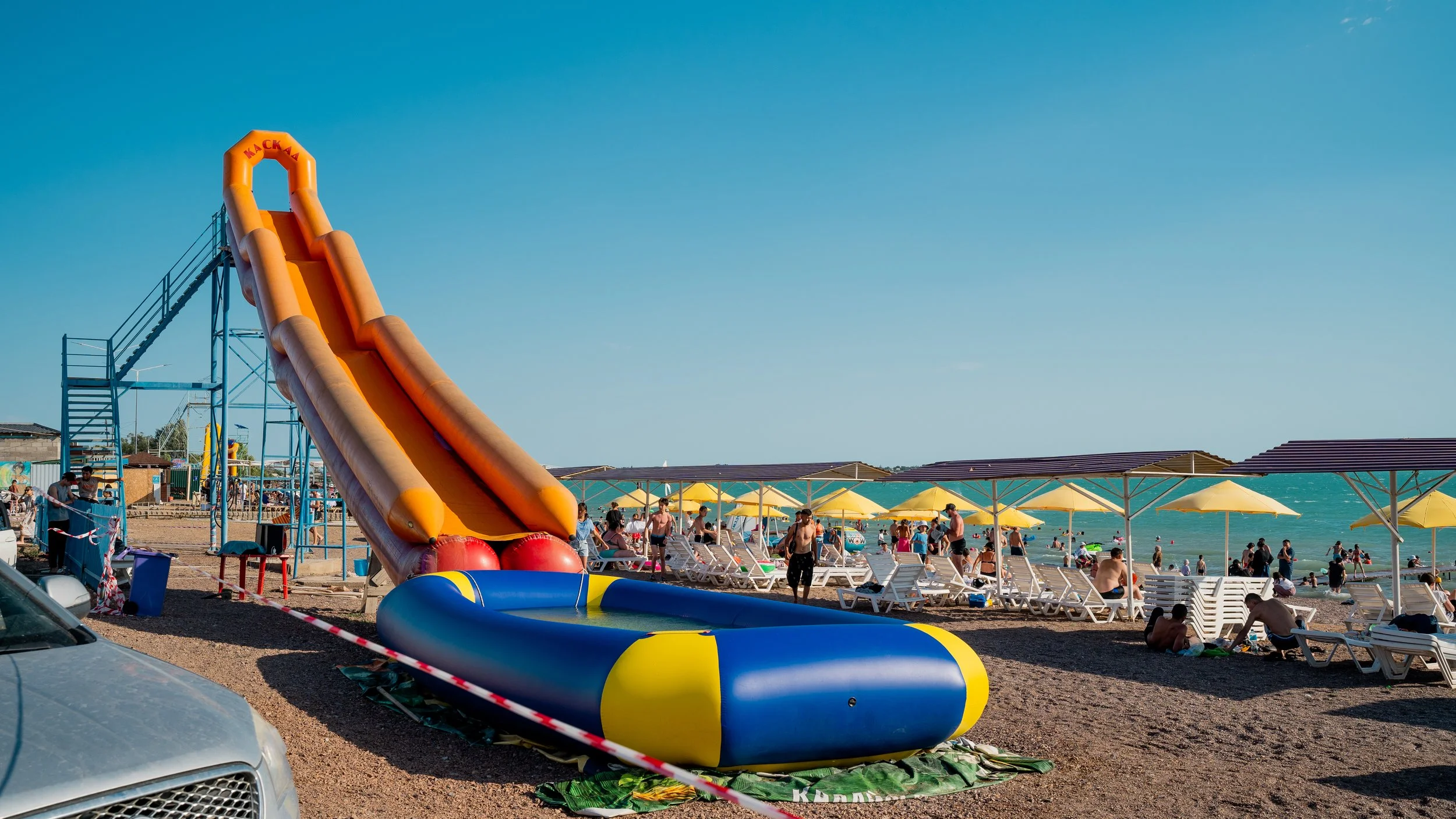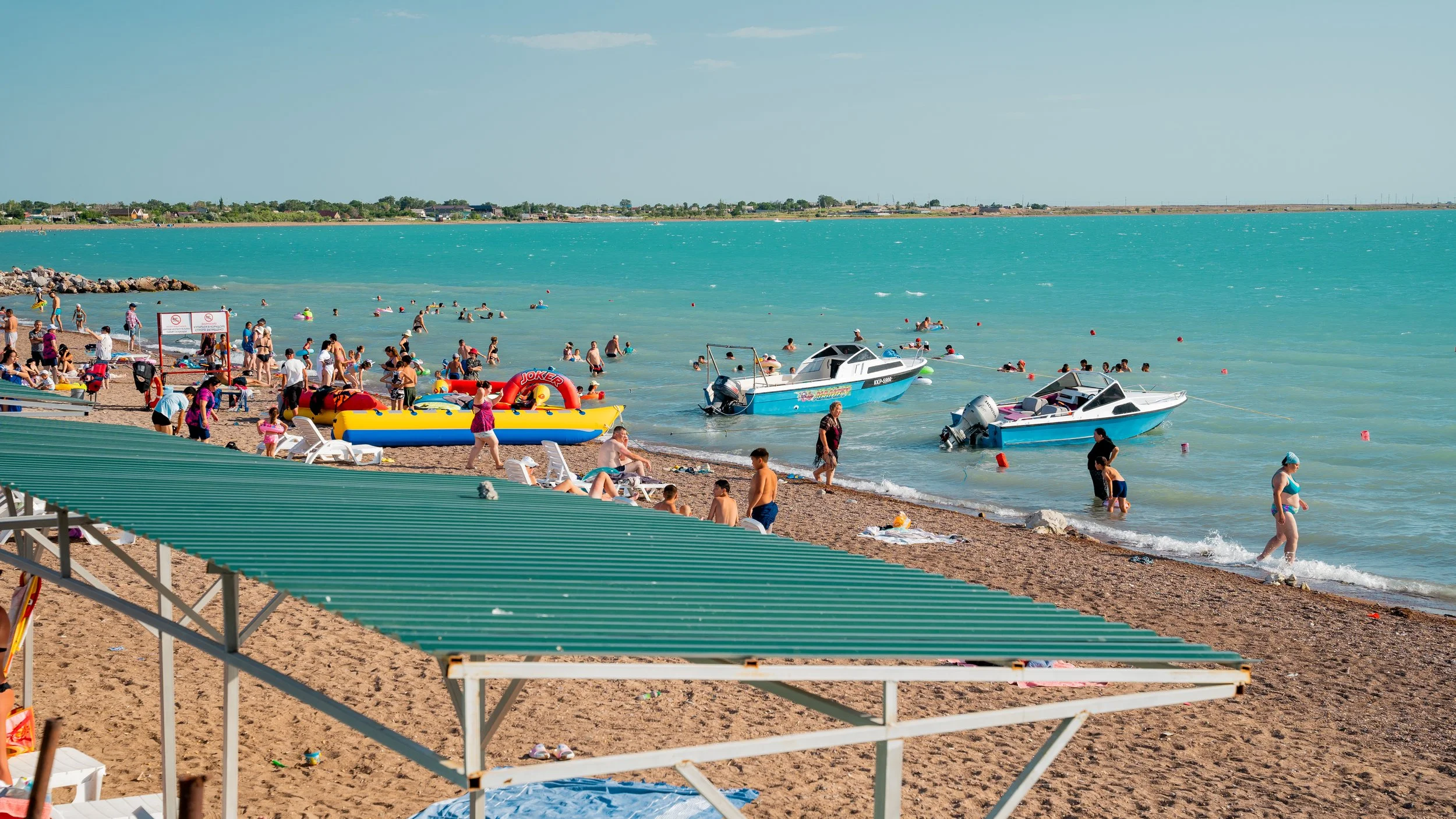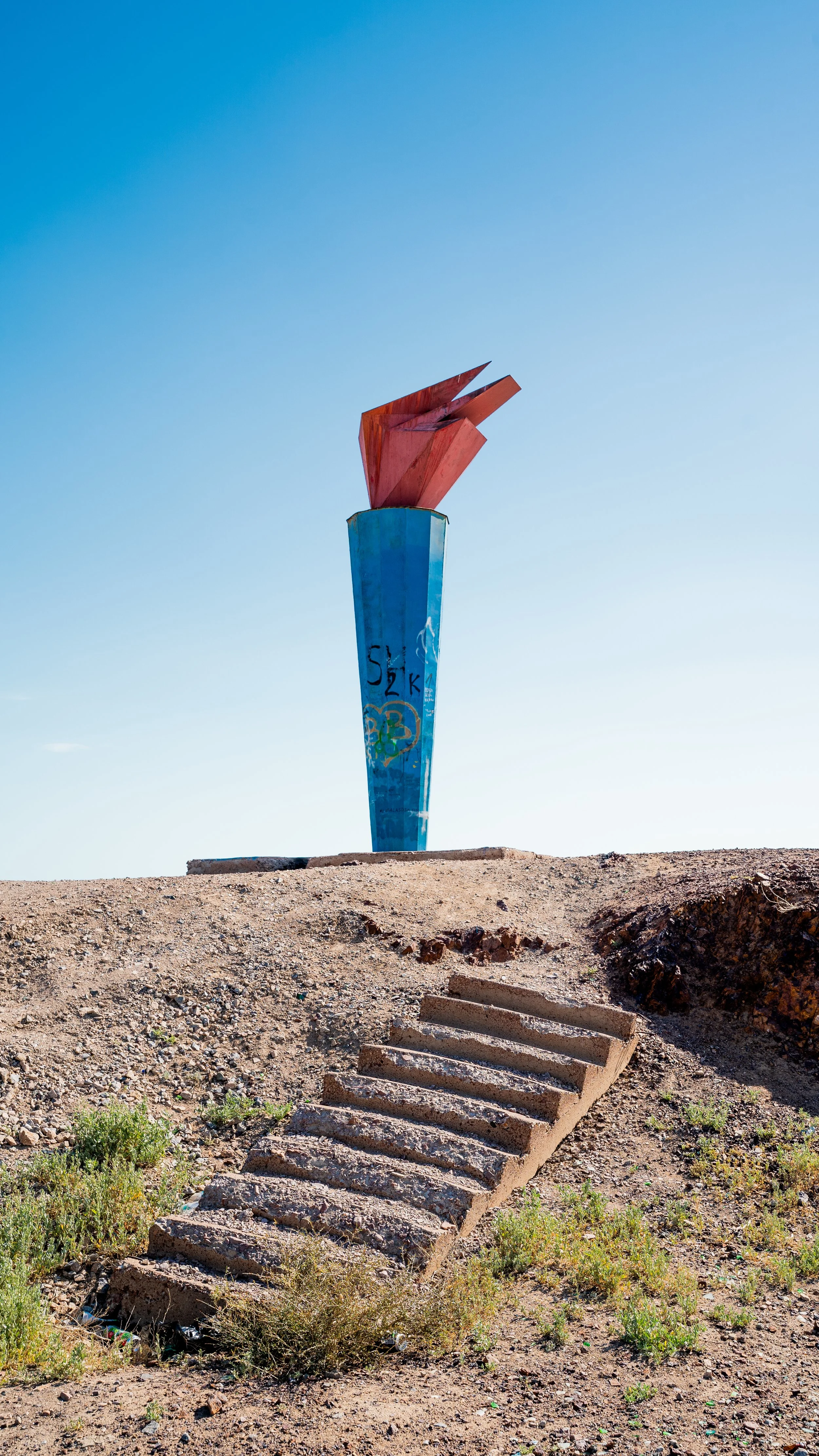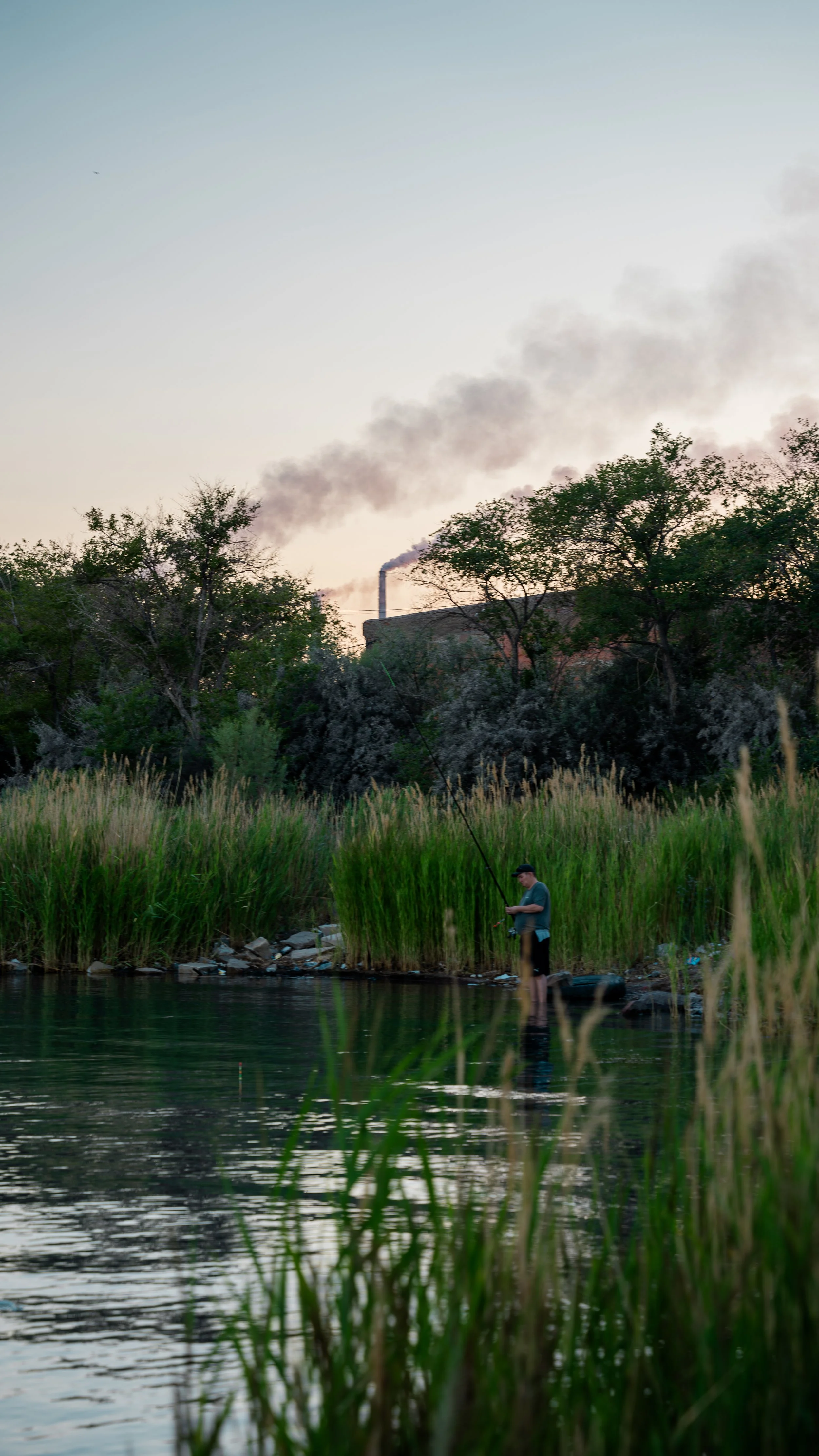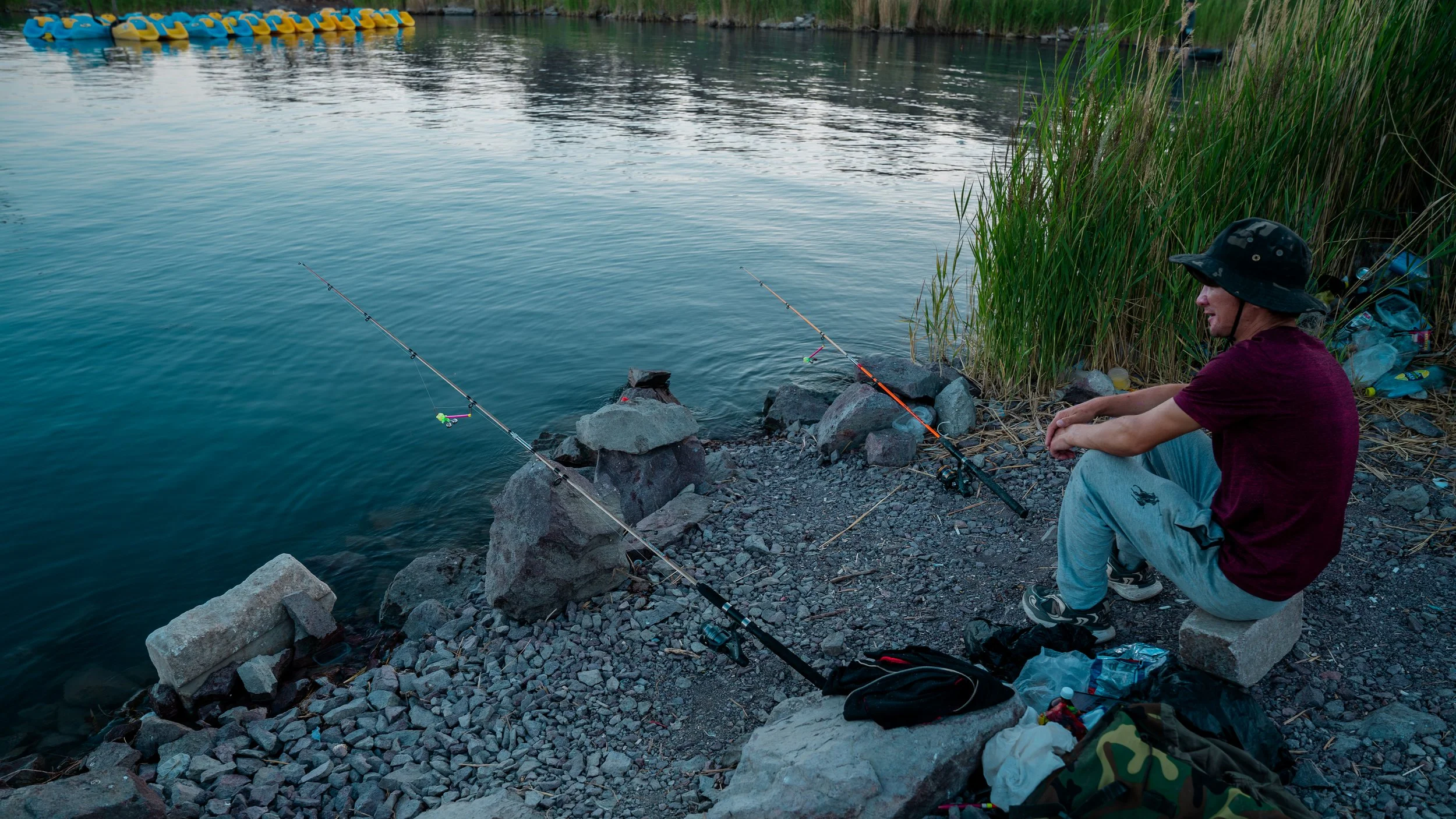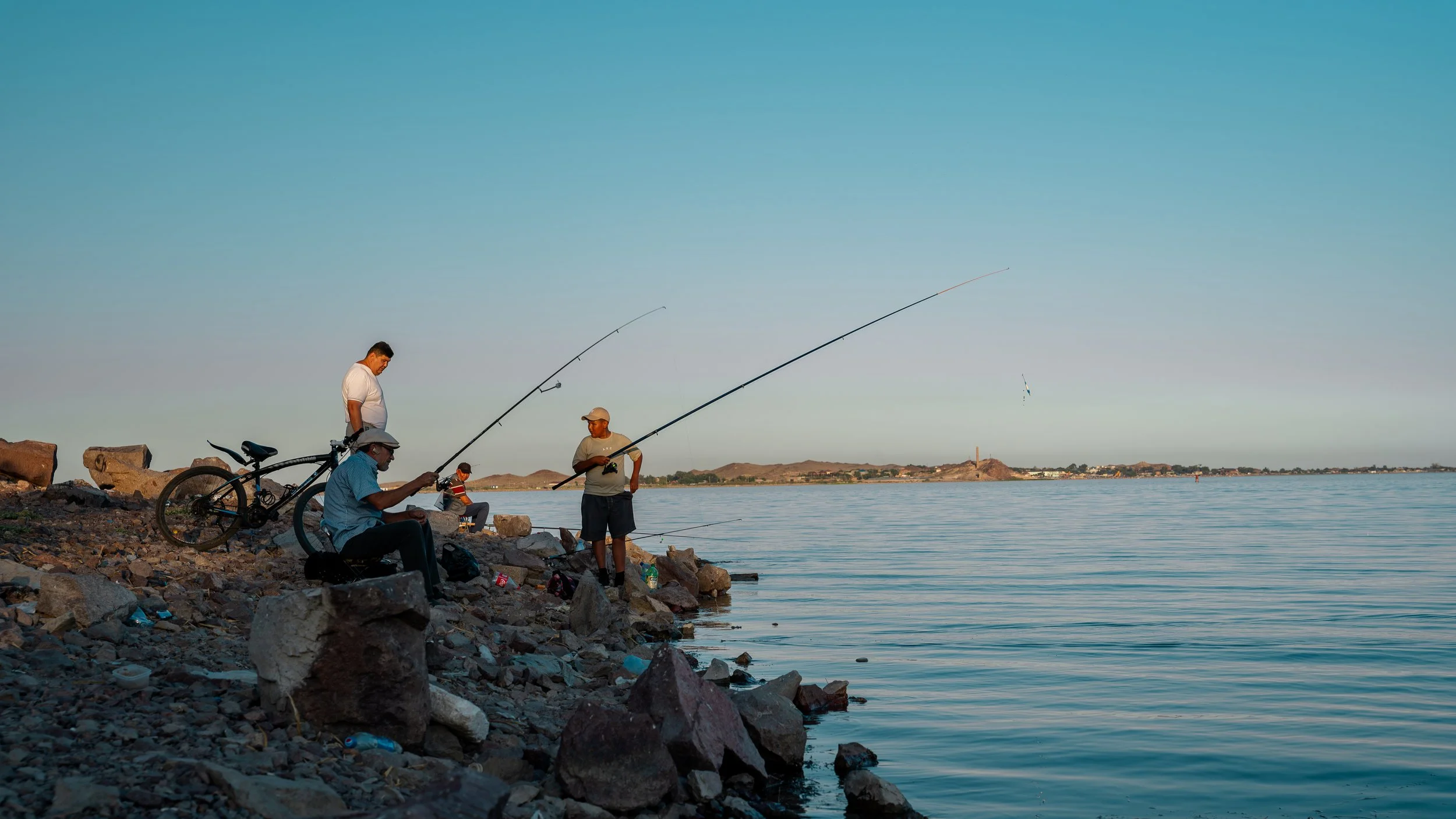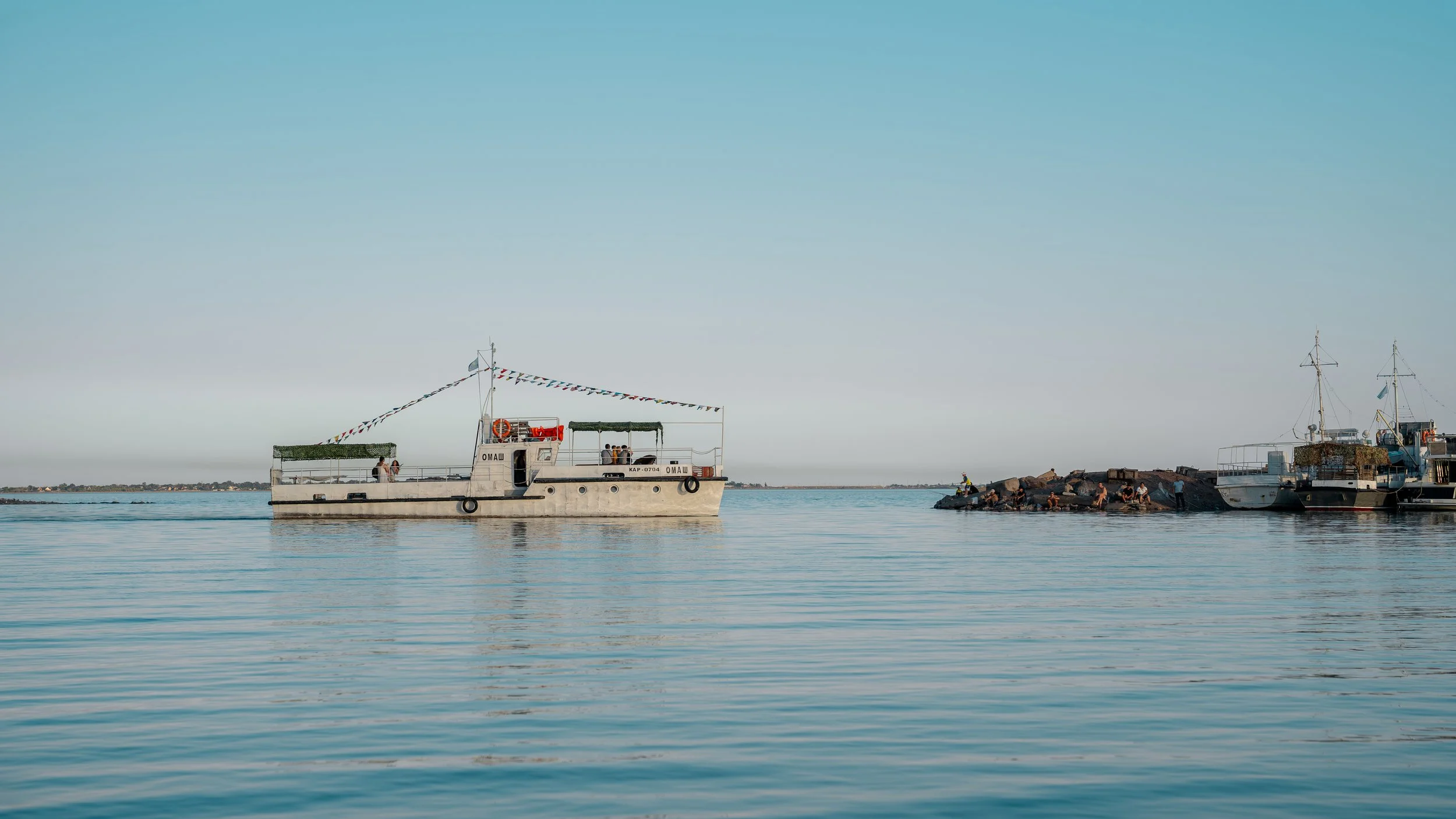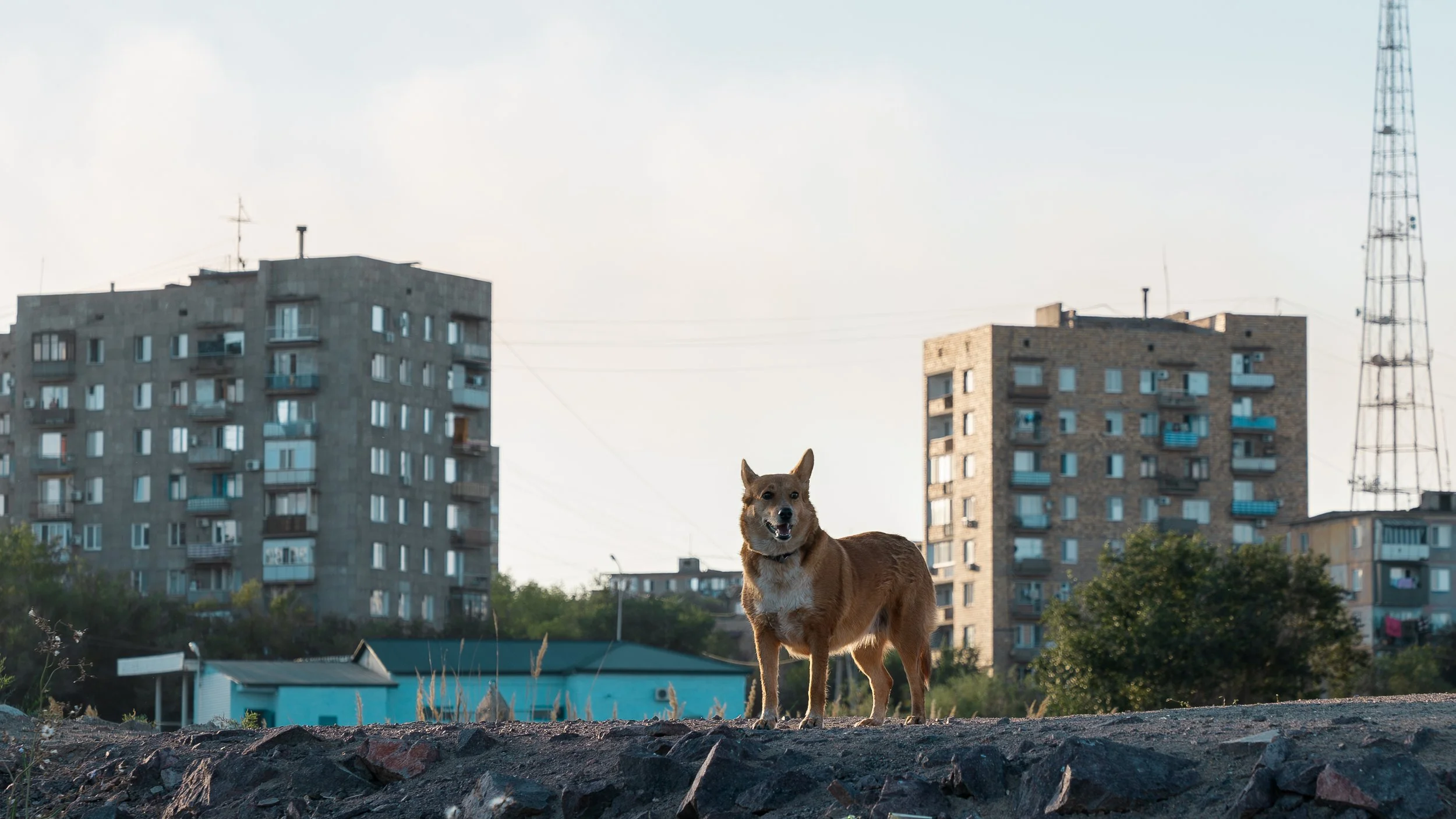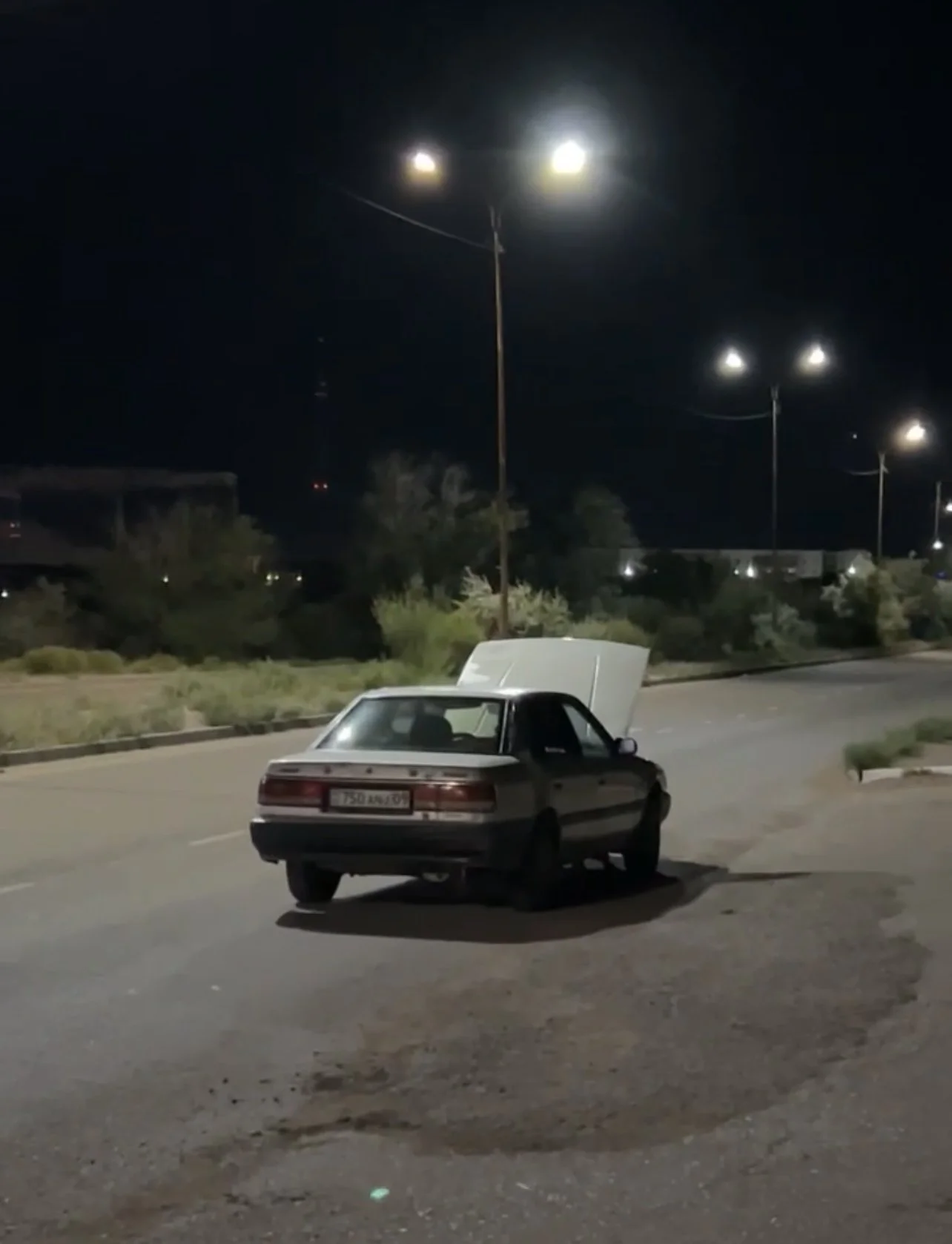Балхаш
This is the second post in a four-part series covering my railroad journey between Almaty and Astana.
The Talgo - Балхаш - The Future - 15 hours in Aktogay
Balkhash 2 Train Station
The sun washed out my face as I stepped off the train and onto the platform at Balkhash 2 Station. I tactically placed my sunglasses over my prescription lenses similar to astronauts flipping over their reflective vizors in space. If only I looked this cool after a twenty-four-hour train journey. It appeared as if I had traveled to a different planet. An endless landscape of sand and sky existed beyond me in three directions. In the other direction, a town with low-rise apartment buildings and tall smokestacks assured me I was still on Earth. This is the Kazakh Steppe—the steppe where astronauts touchdown after spending months in space.
I came here to observe daily life outside of Kazakhstan's larger cities. What did I find? I found a place that allowed me to remove myself from the rest of the world. Balkhash enabled me to think deeply about myself. To think about what kind of life I wanted to live. This place simplifies life down to what is often taken for granted. This place also reflects humanity’s relationship with the Earth’s natural resources. The world relies on Balkhash’s contribution to the global supply of copper. Lake Balkhash provides water to the desperate cities sprouting up just across the border in China’s Jinjang province. Balkhash now faces an identity crisis. Concerns about Lake Balkhash drying up in the future threaten the existence of independent fisheries and beach getaways for tourists in the summertime. Nevertheless, it is a small town attempting to maintain its relevance between the nation’s two largest cities.
The ground is littered with broken glass and other dangerous objects to cut my feet on. My choice of shoe for the day: flip flops, a terrible choice for my weak knees to support the weight of my body, and my overpacked bag on the hottest day of the year. Temperatures can reach into the nineties in the summertime but dip into the negatives in the winter. Can you imagine adjusting between the seasons here?
The neighborhoods in Balkhash resemble an unfinished rendering in a video game. Apartments appear as if they were copied and pasted over a lightly textured plane. The architecture consists mostly of Soviet-built apartments from different eras. The five-story apartments below are Khrushchyovkas, named after the Soviet leader, Nikita Khrushchev. These were most likely built in the 1960s. Unlike most Khrushchyovkas found throughout the rest of the former Soviet Union, Balkhash is brightly tiled in positive colors. The blue mosaic facade represents the inviting waters of Lake Balkhash.
An example of what my house looked like in Okinawa, Japan
I felt oddly comfortable here. I remember the environment I grew up in as a kid. I lived on a military base in Okinawa, Japan for a couple of years. Every residential apartment, commissary, post office, and exchange is finished with the same color and concrete box design. Everything is typically within walking distance. I lived in a multiplex unit meant to shelter military families from the elements and nothing more. The U.S. military made no room for interesting and inviting designs in their budget. Just four concrete walls and a few windows. Oh—and a patio for your BBQ grill.
24/7 car wash
I stayed at the Elite Capsule Hotel. For just fourteen dollars a night, you receive a capsule bed, a small cupboard, communal bathrooms, and a shared kitchen. This accommodation style originally started in Japan but has slowly made its way into other regions of the world. I made friendly conversations with the owner, Chingiz, who decided to come back to Balkhash after living in Texas for thirty-five years. His staff treated me insanely well throughout the entirety of my stay.
Images from Booking.com
I met Alina, a resident of Balkhash studying journalism at Karaganda State University. She worked at the hotel for her summer job. Curious about her hometown, I asked her some questions.
Q: What do you like about Balkhash?
A: I like the small population of people (70,000). The fact that the city itself is in the palm of my hand. You can walk and enjoy it infinitely.
Q: What do you dislike?
A: I don’t like the fact that our factory often pollutes our air. Especially in summer, the plant releases gas to the whole city which is unpleasant.
Q: What has changed since you have lived here?
A: A lot has changed. New playgrounds have been built, our square has been renovated. Small changes are making themselves felt.
Q: What is the city famous for? What brings people to the city?
A: Of course, the lake. It is often to vacation.
Q: What do people do here for work?
A: Almost half of the city works at the factory. Some are engaged in fishing.
Q: What did the city look like during the USSR?
A: In Soviet times, the city was an ordinary old one, in those days our parents and grandparents lived and the factory still operated.
Q: What improvements would residents like to see in the future?
A: Improving the quality of the roads, as well as the environmental improvements.
Q: Are people leaving Balkash for other cities?
A: Yes, especially the young ones. Since there is no university with higher education in Balkhash.
Q: What opportunities are available for younger people in Balkhash?
A: The opportunity to work in the factory offers rapid career growth. The salary is very good. Opening a small business is possible since the city is small and has few establishments.
Q: What are their career interests and hobbies?
A: Most of all they are interested in working and quality rest. Balkhash residents often go on vacation abroad. Many hobbies also include sports and fishing. There are also many technical colleges.
This video provides an overview of some of the problems in Balkhash. This video is produced by Airan Media, an independent news agency in Kazakhstan. (subtitles are available in English)
Let’s do some more exploring.
This is the local Mosque. The bus stop out front depicts multiple images of monuments dedicated to the Great Patriotic War (WWII). These monuments are located in and around the town.
Flower shops, lemonade stands, and mini markets typically reside on the first floor of residential buildings. Do not forget about the boxing machines randomly placed throughout the city.
Above, a young guy walks down the street with a boom box strapped around him playing Russian rap music. Just like those kids who used to play music throughout the hallways in school.
These apartments sit at the edge of the city. They are essentially a massive wind barrier protecting the schools and parks behind them.
A typical outdoor gym. There is no such thing as a wait time on the machines here.
I photographed the main square during the hottest part of the day. Families come here in the evening to play games, eat ice cream, and watch their kids drive around in those miniature Mercedes G-wagons. The local copper smelting plant, Kazakhmys, hosted a live performance for kids. Cartoon characters danced on stage to music.
“Monument in honor of the 50th anniversary of the organization of the PriBalkhashstroy Trust 1981. The memorial is protected by the state.”
The lake offers locals an opportunity to cool off in the summertime. For others, fishing along its shores is easily a favorite. I also met Igor, a Ukrainian man who spends his time walking his dog, Liza, and drinking beer out of a water bottle. Liza startled me upon first meeting Igor. She ran out from the sea grass barking at me. I did not want to cross paths with another dog in this country. I avoided Liza until Igor shouted something in Russian at me. I responded and before I knew it, we were taking selfies together on his phone. To both our enjoyment, he was surprised to meet an American and yelled for another roughed-up man with missing teeth and a half-empty beer to talk with me. After taking a few sips of his beer and lighting a new cigarette, Igor told me in Russian, “You’re the same person as we are, it turns out. Why am I asking you, after heartbeats, no one is actually American.” Most of our conversation consisted of me nodding to his nihilistic view toward politics. “Did you know our governments are being run by someone else? Nothing we do or say matters.” Great….
Apparently we look alike
Igor has an outgoing personality. He introduced me to a few gentlemen fishing on the jetty. I met Amir, an architect who works in Astana. He spoke a few words in English but ultimately our conversations were in Russian. I also met Adam, a local who sits out here every day to fish. We talked for hours discussing politics, the Arizona desert, and the women we love back home. Little did I know the best memories would come from meeting Igor and the fishermen. We agreed to meet the next day at eight o’clock in the evening.
Amir and Adam
Igor suggested I visit the shoreline with resort-style guest houses. Umbrellas and beach chairs fill the beachfront. Russian pop music plays constantly from every smoothie bar and poolside. Everyone is wearing shorts, slides, and the usual bucket hat with a marijuana leaf pattern. Snoop Dogg is also popular here. Sunscreen doesn’t seem to exist here either. I observed many people baked by the sun. This is beach tourism in the Russian-speaking world. It comes with its tackynes like any beach on the East Coast of the U.S.
The eternal flame flickering over factory ruins
I came across a seagull wading in the water on its back. A bone stuck out from its right wing. The puncture took in water after each passing wave. What do I do? No one was in my vicinity to ask for help. I tried searching the internet for a local animal refuge facility. No luck. I sat with the seagull while looking at the factory across the water. The contrasting landscape simultaneously felt grim and pleasant. The copper plant in the distance churning out asthma-inducing fumes while families play in the water.
For most of the day, I thought about meeting Igor and the fishermen in the evening. Would they show as promised? Regardless, I bought a few beers to share in case anyone wanted to hang out with the only American in town. Sure enough, I found Adam sitting on the jetty with his fishing gear dispersed over the rocks. Another friend named Ermek sat with him. This was the beginning of a very long night with these two guys. There were jokes, drinks, and uncertainty about whether I would make my train to Astana in the morning.
Adam
Liza
I worried Igor might have forgotten about our fishing party. We never exchanged phone numbers either. Eventually, Liza ran over to the jetty. Igor followed slowly behind. I was stunned to see a friend I knew very little about.
From left to right: Igor, Ermek, Andrew (me), Timur, Nursultan
Nursultan is a soldier in the Kazakh Army
Ermek tried his best to communicate his thoughts when I didn’t understand a specific word in Russian. He frequently made whistling sounds accompanied by the movement of his hands to emphasize adjectives. The guy was full of jokes and had everyone constantly laughing.
Ermek and his friends told me about a custom in Kazakh culture. Allegidly, it is customary for the guest to buy everyone a round of drinks. Igor shook his head at me in disbelief. Let’s just say I was thirsty as well. We ventured into the nearest market and I bought locally brewed lagers from Karaganda, Kazakhstan. I believe my good grace caused the crabs to finally bite the fishing lines.
We continued fishing until two in the morning. I had a few hours left to collect my bags from the hotel and board the train to Astana. Ermek insisted I wouldn’t miss my train, but his first thought included finding a restaurant that prepared Shashlik. To be honest, eating lamb on a skewer this early in the morning also crossed my mind. Our stomachs were filled with alcohol and sunflower seeds. We packed up and I said goodbye to Igor knowing this would be the last time I see him. Adam went home to change clothes while I hung out in Ermeks apartment eating his leftover chicken broth with potatoes. This moment reminded me of all those late college nights eating junk food in a random student’s dormitory. I never thought this bizaare moment would occur on my trip. Again, Kazakh hospitality is also unmatched and people always invite others into their homes to break bread.
We finally picked up my bags from the capsule hotel after hailing down a random car to drive us there. The same car broke down on the way to the restaurant… I gave the driver some money to help cover any maintenance costs. In a rush against time, Ermek called a taxi and we drove to a cluster of restaurants along the M-36 highway just outside the edge of town. Dozens of commercial trucks and passenger buses are parked outside. These restaurants operate in the graveyard hours to service the truckers traveling throughout the country. Unfortunately, I suck at documenting things and didn’t take a picture of the food or the atmosphere of the restaurant. Just imagine a small room with dozens of guys quietly eating beef and rice.
Ermek stands in the crowd looking as if he were ready to board the train
Ermek and Adam accompanied me to my train. I think they wanted to ride with me to the capital. I said my final goodbyes shaking their hands from the steps of the wagon. I knew they were laughing about the whole experience and couldn’t wait to tell their friends about their night. They had the picture of me holding up my passport to prove they met an American.
My new friendships shed light on a realization. I often center my experiences around the faces I meet when I travel. Unexpected adventures occur when I visit places. For instance, I never planned to bike around San Diego, California with three Turkish guys and an Italian twice my age. I never planned on visiting Naples, Italy after making new friends in a hostel in Florence, Italy. The other option would have been to continue venturing around by myself. That’s only fun for a short time. I find it liberating to land in a new town with no itinerary. I let the people I meet in town write my memories. However, these types of friendships are fleeting. They disappear once I leave town. Although the memories are forever. Maybe I’ll see Igor and the fishermen in the future.




